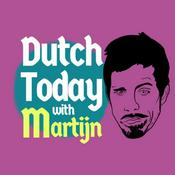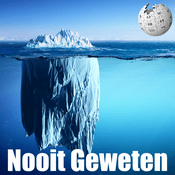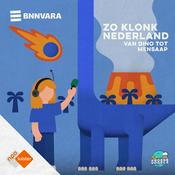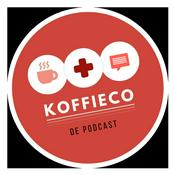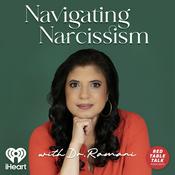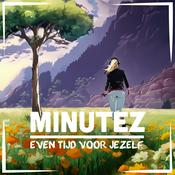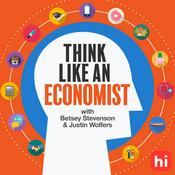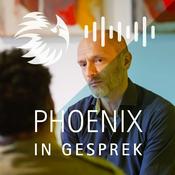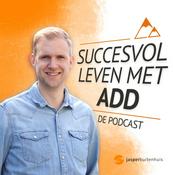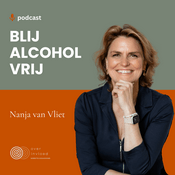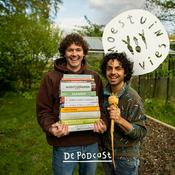Future Cities · Sustainability, Energy, Innovation, Climate Change, Transport, Housing, Work, Circular Economy, Education & Environmental Solutions
One Planet Podcast · Creative Process Original Series
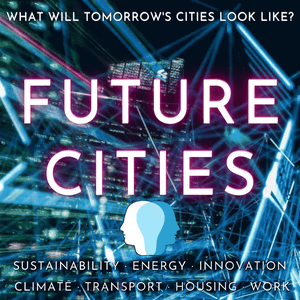
Nieuwste aflevering
Beschikbare afleveringen
5 van 137
- Performance, Politics, Art & Society w/ Sociologist RICHARD SENNETT - Highlights“I'm really interested in the relation between performance and ritual. Where do those two separate?”Richard Sennett grew up in the Cabrini Green housing project in Chicago, attended the Juilliard School in New York, and then studied social relations at Harvard. Over the last five decades, he has written about social life in cities, changes in labour, and social theory. His books include The Performer: Art, Life, Politics, The Hidden Injuries of Class, The Fall of Public Man, The Corrosion of Character, The Culture of the New Capitalism, The Craftsman, and Building and Dwelling. Sennett has advised the United Nations on urban issues for the past thirty years and currently serves as member of the UN Committee on Urban Initiatives. He is the Centennial Professor of Sociology at the London School of Economics and former University Professor of the Humanities at New York University.“I want to show what is kind of the basic DNA that people use for good or for ill. What are the tools they use, if you like, of expression that they use in the creative process?”Episode Websitewww.creativeprocess.info/podInstagram:@creativeprocesspodcast--------12:43
- The Performer: Art, Life, Politics with RICHARD SENNETT, Sociologist & Author“We look at creative work as though the very creative process itself is something good. These are tools of expression, and like any tool, you can use them to damage something or to make something. They can be turned to very malign purposes, for instance, in the operas of Wagner. So I wanted to do this set of books, I want to show what is kind of the basic DNA that people use for good or for ill. What are the tools they use, if you like, of expression that they use in the creative process?”Richard Sennett grew up in the Cabrini Green housing project in Chicago, attended the Juilliard School in New York, and then studied social relations at Harvard. Over the last five decades, he has written about social life in cities, changes in labour, and social theory. His books include The Performer: Art, Life, Politics, The Hidden Injuries of Class, The Fall of Public Man, The Corrosion of Character, The Culture of the New Capitalism, The Craftsman, and Building and Dwelling. Sennett has advised the United Nations on urban issues for the past thirty years and currently serves as member of the UN Committee on Urban Initiatives. He is the Centennial Professor of Sociology at the London School of Economics and former University Professor of the Humanities at New York University.Episode Websitewww.creativeprocess.info/podInstagram:@creativeprocesspodcast--------31:57
- Navigating Our Environmental Future From Climate Crisis to Urban RevolutionHave we entered what Earth scientists call a “termination event,” and what can we do to avoid the worst outcomes? How can we look beyond GDP and develop new metrics that balance growth with human flourishing and environmental well-being? How can the 15-minute city model revolutionize urban living, enhance health, and reduce our carbon footprint?Euan Nisbet (Earth Systems Scientist - Royal Holloway University of London) analyzes historical patterns that point to a potential termination event and emphasizes the urgency of addressing abrupt climate changes.Daniel Susskind (Economist - Oxford & King’s College London - Author of Growth: A Reckoning - A World Without Work) discusses the economic trade-offs involved in pursuing net-zero emissions and the growing public discontent with the costs.Carlos Moreno (Originator of the 15-Minute City concept - Author of The 15-Minute City: A Solution to Saving Our Time & Our Planet) explores how the 15-minute city model can enhance urban living, promote local commerce, and reduce our carbon footprint.Richard Black (Author of The Future of Energy - Former BBC Environment Correspondent - Director of Policy & Strategy - Global Clean Energy Thinktank - Ember) explains the future energy landscape, critiques the contributions of oil and gas companies to the clean energy transition, and emphasizes the need for a realistic clean energy transition.Carissa Carter (Academic Director at Stanford's d.school - Co-author of Assembling Tomorrow: A Guide to Designing a Thriving Future) highlights the importance of people critically interpreting climate data and understanding its emotional impact.Gordon Lambert (World Economic Forum Global Council - Energy and Sustainability - Former Member of Alberta’s Climate Change Advisory Panel) shares his personal reflections on the harmony of nature and the necessity of aligning business strategies with renewable energy goals.Dr. Ben Shofty (Functional Neurosurgeon - Professor - University of Utah) discusses the health benefits of exposure to nature and its positive impact on well-being and creativity.Julia F. Christensen (Neuroscientist - Author of The Pathway To Flow: The New Science of Harnessing Creativity to Heal and Unwind the Body & Mind) explores the neuroscience behind human interaction with nature and its restorative effects on the brain.The episode examines critical issues surrounding climate change, economic growth, and urban development. Euan Nisbet highlighted the urgency of addressing abrupt climate changes, while Daniel Susskind shed light on the economic complexities of achieving net-zero emissions. Carlos Moreno presented the revolutionary concept of the 15-minute city, and Richard Black emphasized the need for a realistic clean energy transition. Carissa Carter underscored the importance of understanding and visualizing climate data, while Gordon Lambert, Dr. Julia F. Christensen, and Dr. Ben Shofty provided personal and scientific insights into the benefits of integrating nature into our lives. These conversations give us a deeper look into the challenges and potential solutions for creating a sustainable future.To hear more from each guest, listen to their full interviews.www.creativeprocess.infowww.oneplanetpodcast.orgIG www.instagram.com/creativeprocesspodcast--------12:31
- The Human Smart City: Balancing Ecology & Economy with CARLOS MORENO - Highlights“It all starts at home. As a university professor, I have observed the process of transformation of different generations. We need to find a sense of life. We need to find a sense of belonging to our humanity, but to have this sense of life, we need to find a sense in our local communities.”Carlos Moreno was born in Colombia in 1959 and moved to France at the age of 20. He is known for his influential "15-Minute City" concept, embraced by Paris Mayor Anne Hidalgo and leading cities around the world. Scientific Director of the "Entrepreneurship - Territory - Innovation" Chair at the Paris Sorbonne Business School, he is an international expert of the Human Smart City, and a Knight of the French Legion of Honour. He is recipient of the Obel Award and the UN-Habitat Scroll of Honour. His latest book is The 15-Minute City: A Solution to Saving Our Time and Our Planet.https://www.moreno-web.net/https://www.wiley.com/en-us/The+15-Minute+City%3A+A+Solution+to+Saving+Our+Time+and+Our+Planet-p-9781394228140www.creativeprocess.infowww.oneplanetpodcast.orgIG www.instagram.com/creativeprocesspodcast--------14:22
- The 15-Minute City: A Solution to Saving Our Time & Our Planet with CARLOS MORENOHow can the 15-minute city model revolutionize urban living, enhance wellbeing, and reduce our carbon footprint? Online shopping is turning cities into ghost towns. We can now buy anything anywhere anytime. How can we learn to stop scrolling and start strolling and create more livable, sustainable communities we are happy to call home.Carlos Moreno was born in Colombia in 1959 and moved to France at the age of 20. He is known for his influential "15-Minute City" concept, embraced by Paris Mayor Anne Hidalgo and leading cities around the world. Scientific Director of the "Entrepreneurship - Territory - Innovation" Chair at the Paris Sorbonne Business School, he is an international expert of the Human Smart City, and a Knight of the French Legion of Honour. He is recipient of the Obel Award and the UN-Habitat Scroll of Honour. His latest book is The 15-Minute City: A Solution to Saving Our Time and Our Planet.“It all starts at home. As a university professor, I have observed the process of transformation of different generations. We need to find a sense of life. We need to find a sense of belonging to our humanity, but to have this sense of life, we need to find a sense in our local communities.”https://www.moreno-web.net/https://www.wiley.com/en-us/The+15-Minute+City%3A+A+Solution+to+Saving+Our+Time+and+Our+Planet-p-9781394228140www.creativeprocess.infowww.oneplanetpodcast.orgIG www.instagram.com/creativeprocesspodcast--------38:28
Meer Onderwijs podcasts
Trending Onderwijs -podcasts
Over Future Cities · Sustainability, Energy, Innovation, Climate Change, Transport, Housing, Work, Circular Economy, Education & Environmental Solutions
What will the city of tomorrow look like?We are living in the Century of the City. Cities are the main drivers of creativity and innovation. Yet, a great number of people have little or no conception of what their future will look like when it comes to creating resilient, sustainable, and liveable cities. Even though a significant majority are intent on learning more about climate disruption, energy, transport, water, air, waste, education, and jobs.In a decade of transformative change, Future Cities podcast tells stories about the best in democracy, culture, urbanism, and society. It is a story of the cities of tomorrow told in a relevant, exciting, and accessible way by the many stakeholders and changemakers reimagining and reshaping our future.
www.oneplanetpodcast.orgwww.creativeprocess.info
Podcast websiteLuister naar Future Cities · Sustainability, Energy, Innovation, Climate Change, Transport, Housing, Work, Circular Economy, Education & Environmental Solutions, Podcast Filosofie en vele andere podcasts van over de hele wereld met de radio.net-app

Ontvang de gratis radio.net app
- Zenders en podcasts om te bookmarken
- Streamen via Wi-Fi of Bluetooth
- Ondersteunt Carplay & Android Auto
- Veel andere app-functies
Ontvang de gratis radio.net app
- Zenders en podcasts om te bookmarken
- Streamen via Wi-Fi of Bluetooth
- Ondersteunt Carplay & Android Auto
- Veel andere app-functies


Future Cities · Sustainability, Energy, Innovation, Climate Change, Transport, Housing, Work, Circular Economy, Education & Environmental Solutions
Scan de code,
download de app,
luisteren.
download de app,
luisteren.




